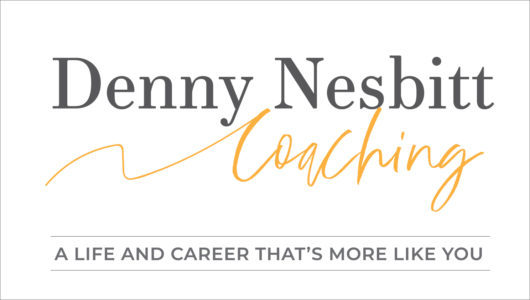I work with a lot of women who are job hunting – whether that’s part of a career change, return to work or simply looking for the next move and, without wanting to sound like a negative Nelly, I see some very common mistakes in their job-hunting approach.
In this article I outline the top three.
If you’re guilty of any of them, then the good news is that they are easy to rectify but the first step is being aware that you’re even making them.
Underselling value
This is the mistake I see the most frequently. A lot of women, especially mums who have taken a break from the workforce, just don’t realise how awesome they are. Or they have a hard time conveying it. This results in them not applying for jobs where they can’t tick off all the selection criteria and applying for jobs that they are massively over-qualified for because this sits more in their comfort zone.
The key way to combat this is to really understand what you have to offer. Take a look at the jobs you are interested in, get to know the skills they require (common ones are communication, problem solving, initiative, teamwork) and deeply consider all of your experiences in the past and how they align. Then get comfortable talking about it.
The other thing is that if you really want a role and you don’t match all the selection criteria, but say you match around 70 per cent, then apply for it. The selection criteria are a list of the ideal experience and qualities that employers want candidates to have – however, they are usually realistic about the chances of finding someone who ticks all the boxes. Especially in a candidate’s market like it is right now. So be bold.
Whilst you might think it’s safer to apply for a role that you can do standing on your head, this will not lead to a satisfying and well-paid job for you. It may also set off alarm bells for employers when you apply for a role that you are clearly overqualified for. They may question your motivations or be concerned that you will leave quickly for a more challenging role.
Doing things half-arsed
What does a half-arsed job application look like?
It looks like an application that hasn’t been tailored to the employer and their selection criteria.
It doesn’t have a covering letter attached.
It has spelling mistakes throughout.
Applying for jobs is time consuming, especially when you need to respond to government selection criteria, so I understand why you might be tempted to shoot off the same resume for as many jobs as possible, or skip the covering letter, particularly if one isn’t asked for but you will be doing yourself a disservice.
And this point isn’t about laziness, it’s related to underselling your value, or not even knowing what your value is and the jobs that match. Rather than take the time to work this out (because it’s hard) I see women, and men, put in half-arsed job applications because that’s got to be better than doing nothing right?
Wrong.
If you’re putting in half-arsed applications that aren’t tailored to the selection criteria of a job, then you’re wasting your own time and an employer’s time. And if you do this more than once with the same employer, you’ll get a black mark against your name.
The other thing is, say an employer does like the look of your untailored resume, calls you in for interview and offers you a job? That doesn’t mean the job is right for you. By taking whatever job comes your way you are leaving yourself at the mercy of circumstance. I predict you’ll end up unhappy or looking for another job again real soon.
Relying too much on applications
The other big mistake I see, almost all of the time, is relying on applications alone. I tell job hunters to not simply look for jobs but also to look for people. This is especially important when someone is changing career because in this circumstance, you’re not likely to tick 70 per cent of the boxes on paper. But when you meet an employer, face to face, through your network, and they like you they are more likely to overlook that.
I know the term networking makes a lot of people cringe but try to think of it as making friends in your industry or getting in touch with old friends. I also know a lot of people claim to not have a network but they are usually better connected than they think. You need to think broad, not just work, but who do you encounter at kids’ sports, who does your hairdresser know, who do your neighbours know? For more advice on networking see my previous blog post.
If you’re making any of these mistakes, then it’s important to know that you’re not alone. Everyone makes them. I have made them too.
If you need help rectifying these common mistakes and being successful in your job search then contact me for a FREE working mum SOS. In 30 minutes I can give you some tips to get you back on track, with no obligation for further coaching.
Denny

